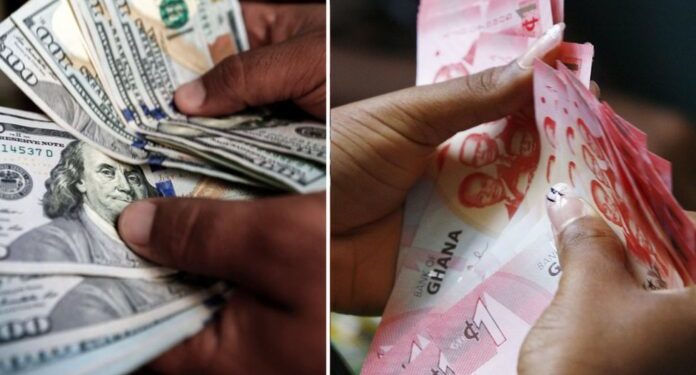Cedi demonstrates resilience amid looming reserve concerns – GCB Capital Research reveals
Amid escalating apprehensions surrounding the precarious state of near-term reserve vulnerability, the Cedi, stands firm in its stability. According to an incisive analysis conducted by GCB Capital Research, the Cedi’s steadfast performance remains unwavering across both the retail and interbank market segments. Notably, there is a subtle but discernible inclination towards appreciation in its valuation.
GCB Capital Research’s meticulous study indicates that within the scope of the retail market, the local currency notched an impressive 1.3% week-on-week growth, adding to an overall year-to-date upswing of 3.5%. The interbank market demonstrated a notable level of resilience, with a year-to-date decrease of 22.1%.
The report underscores a noteworthy silver lining in the budget execution landscape for the ongoing fiscal year. This positive trajectory signals a renewed dedication to fiscal prudence, a pivotal tenet within the confines of the International Monetary Fund (IMF) program.
The potential positive fallout of this renewed commitment lies in its capacity to mitigate immediate investor qualms concerning the nation’s concerted drive for fiscal consolidation, thereby tempering speculative tendencies that have marked the foreign exchange market.
However, amidst these cautiously optimistic indicators, a palpable vulnerability looms in the form of the gross reserve. This exposes the Cedi to the risk of untimely shocks within the foreseeable future. The Government’s projections – foreseeing the FX reserve extending coverage to a mere 0.8 months of imports by the close of the current fiscal year – underscore the inherent fragility of the economic landscape. Despite anticipated infusions from esteemed entities such as the World Bank, IMF, AFDB, and the annual cocoa pre-export finance facility, the local unit’s stability hangs in delicate balance.
The near-term trajectory, as GCB Capital Research astutely concludes, is contingent on the amplification of interest savings derived from an external debt exchange. The currency’s resilience remains firmly poised against prevailing uncertainties, but the scenario underscores the imperative for nuanced financial maneuvering and policy prowess to steer Ghana’s economic ship through potentially turbulent waters.








